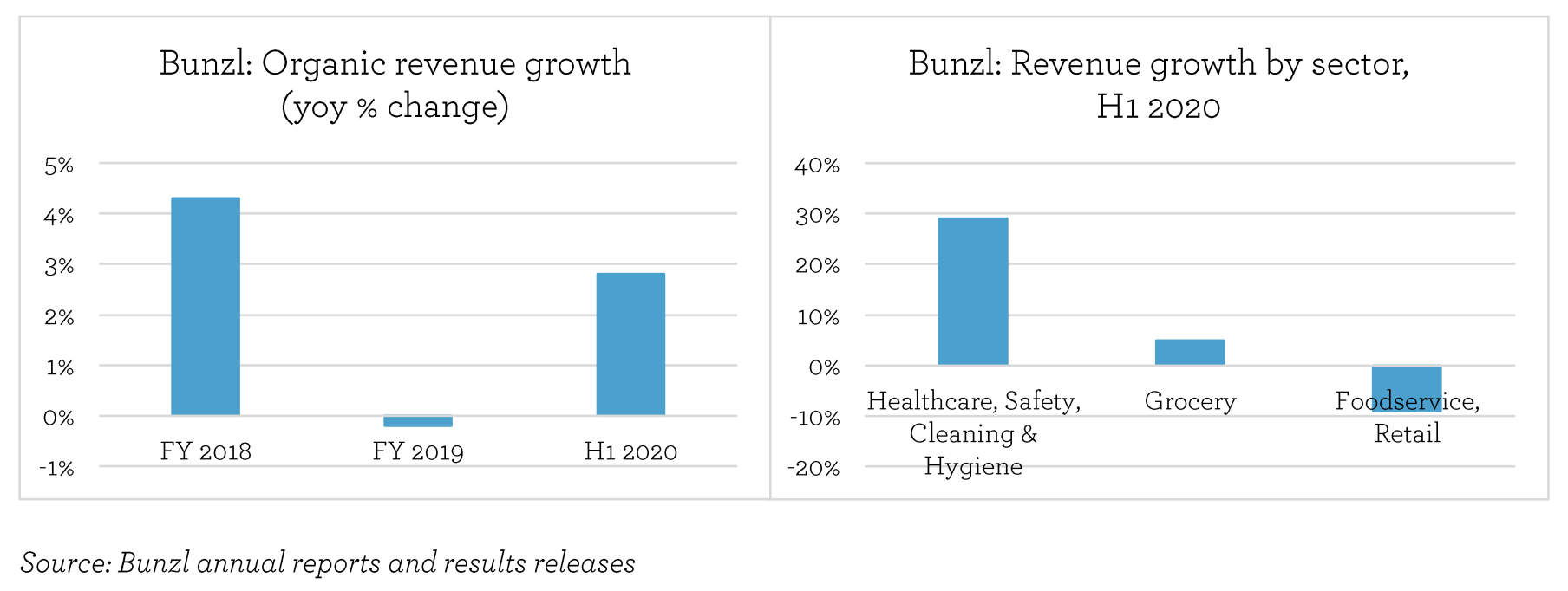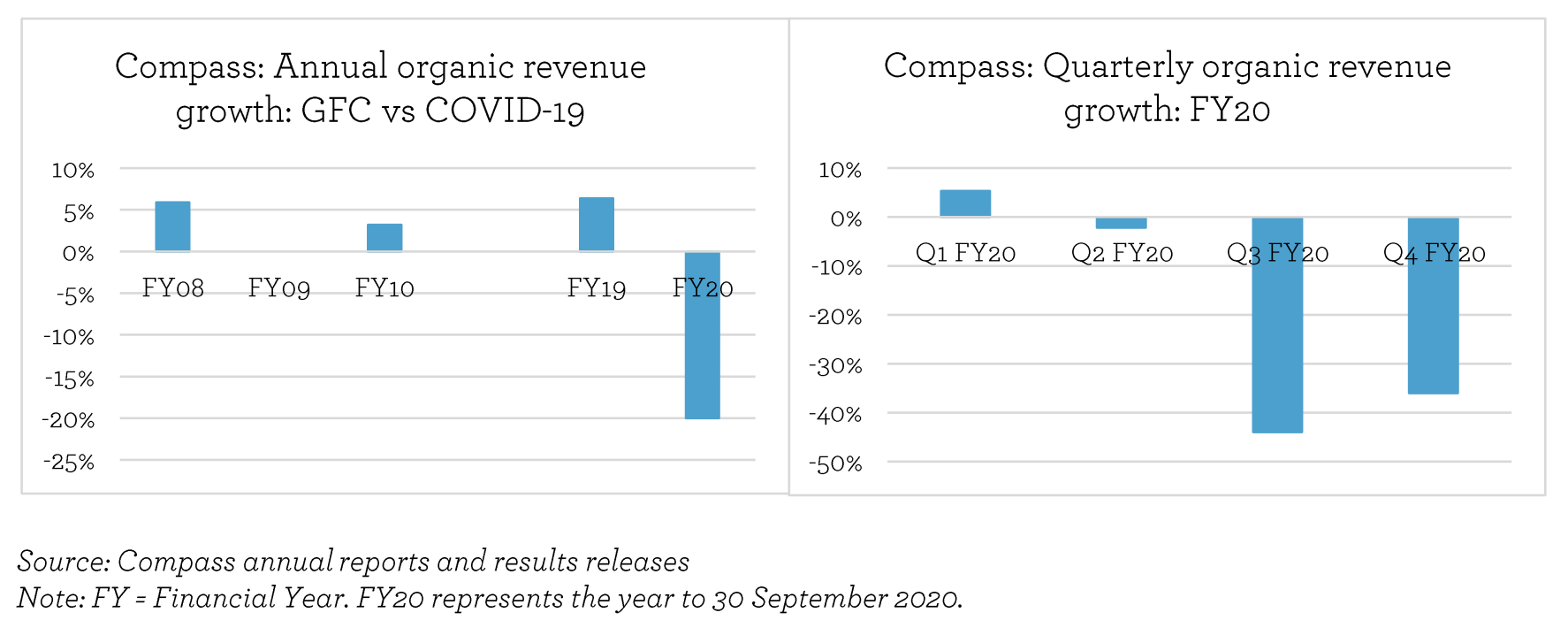The COVID-19 virus continues to have significant health and economic impacts globally and many uncertainties remain. At the time of writing more than 34 million cases have been reported along with over 1 million deaths. The health and economic consequences have impacted the companies in the Evenlode portfolios in a range of ways. Some had to take emergency actions early in the crisis to ensure liquidity and solvency, while others have benefited from higher demand, in areas such as digital and health products. This piece reviews the research we have done at Evenlode to analyse the impact of COVID-19 so far, outlines how some of the most impacted businesses have responded to date, and provides some of our thoughts on the outlook for the coming years.
Evenlode has added to the investment team in recent years, growing from 5 to 12 people and bringing in a range of skills including in accounting, modelling and restructuring. While the investment philosophy and process has not changed, the added depth was particularly helpful during the early part of the current crisis, giving the team capacity to dedicate resource to stress testing and scenario analysis.
The first COVID-19 case was reported to the World Health Organisation in December 2019 and Wuhan locked down on 23rd January 2020. Looking back at analyst calls and management meeting notes from January and early February, the “consensus” appeared to be that COVID would be contained in China or managed without major disruption to the developed economies. By 9th March Italy had begun its lockdown, and while the Cheltenham Festival (held not too far from our Oxfordshire office) went ahead with crowds on 10-13th March, it was not long before the UK and other western economies went into lockdown too. We began reviewing the potential impact of COVID-19 in February and completed our stress testing by the middle of March.
Taking the Evenlode Income fund, of the 39 stocks in the portfolio, we identified 12 that could be significantly impacted by lockdown measures. These came from a range of sectors including consumer goods, distribution and B2B events. However, in most cases the commonalities included that they had some debt and were dependent on products or services consumed in physical locations.
Reassuringly, and partly due to learnings from the 2008/9 Global Financial Crisis, the majority of the companies with debt had no or very lenient covenants (e.g. Smiths Group), significant liquidity (e.g. Diageo), and manageable repayment schedules (e.g. WPP). Hence, while we knew these companies would be impacted by lockdown measures, we were comfortable they could survive for an extended period. This allowed us to take advantage of share price weakness and add to some of these holdings, particularly Diageo and RELX.
This left us with three holdings in the Evenlode Income fund, Bunzl, Informa and Compass , on which detailed stress testing work was required to forecast their financial viability in a worst-case scenario. We have valuation models for all companies in the Evenlode universes and these include two decades (if available) of historical financial information and analysis. In addition, given the potential severity of lockdowns on these businesses in the short-term, we built monthly financial models to forecast cash flow, solvency and liquidity. We disaggregated revenue into buckets based on the potential lockdown impact, and by geography.
For example, we separated Bunzl’s Healthcare business, which has been resilient during the crisis, from its Food Service business, which supplies consumables to restaurants and cafes, and has therefore been impacted by lockdowns. We disaggregated the cost base into fixed costs that management would be unable to cut in the short-term, such as property rent, versus variable costs, such as temporary labour and sales commissions. This allowed us to forecast the company’s monthly performance based on various potential scenarios for lockdowns across the world, and test whether a company would breach financial covenants in its debt facilities or exhaust its liquidity, under severe stress scenarios. The most common financial covenants are applied twice per year and include a solvency or leverage test, such as net debt relative to profit, and debt servicing test, such as profit relative to interest expense. Liquidity typically comprises a company’s cash balance plus undrawn committed debt facilities.
Bunzl, a global distribution business, has been one of the biggest surprises of the COVID crisis so far. Our stress testing suggested Bunzl had sufficient sector diversification, liquidity and covenant headroom to withstand a severe and extended lockdown, so we were comfortable to hold our position. However, Bunzl’s financial performance has turned out to be stronger than we expected, as it grew revenue and profit by 7% and 16%, respectively, in the first six months of 2020. While in a “normal” year around 40% of revenue comes from supplying the food service (restaurants and cafes) and retail industries with consumables, such as napkins and coffee cups, which have been adversely impacted, it has seen strong demand in its other sectors such as Healthcare, Grocery, Safety and Cleaning & Hygiene, and a surge in demand for COVID related products (masks, hand sanitiser etc), as highlighted in the charts below.

Informa generates around two thirds of revenue from running events and exhibitions, and a third from B2B information and analytics businesses, such as academic journals. While the latter has been broadly stable during the crisis, the former has been severely impacted as one would expect, with most large events outside China cancelled. Our stress test analysis highlighted a high risk of covenant breaches in 2020. As a result of this, and other factors, such as uncertainty over the length of the crisis and government restrictions on running physical events, we reduced the position size in Evenlode Income to around 1%, which is down from 3.5% at the beginning of the year. The company has subsequently taken decisive action, reducing costs, raising £1bn of equity and issuing £0.6bn of new bonds. This will allow it to repay covenanted debt if needed and generate positive cash flow even if there is no improvement in the events schedule in the US and Europe. Informa will continue to face challenges while there are restrictions on physical events, but we view it as well positioned to prosper over the medium and long-term, with innovation around hybrid virtual/physical events playing to its strengths.
Compass provides catering services to a range of sectors. As the charts below show, Compass grew revenue during the 2008/9 Global Financial Crisis (GFC), but in 2020 physical lockdowns have impacted its ability to open for business, particularly in the Business & Industry, Sports & Leisure and Education sectors, which together account for c70% of the group. The stress testing analysis highlighted that Compass had ample liquidity, but that the leverage covenant in its US private placement debt facility was at risk of being breached at September 2020 and March 2021. As a result of this, and other factors, including the lack of dividend visibility, we reduced the position size in Evenlode Income to around 1.6%, which is down from 3% at the beginning of the year. Similar to Informa, management has taken decisive action, raising £2bn of equity and obtaining covenant waivers from the private placement holders through to March 2021. With many of its competitors less financially robust and diversified, and focusing on a single sector or country, Compass is now well placed to win significant new business as the crisis unfolds.

Looking forward we view all portfolio companies as having sufficiently robust finances with liquidity and solvency positions that could withstand a return to prolonged and severe lockdowns in 2020 and 2021.
In addition to challenges already noted, the current crisis has also created strategic opportunities. We expect many of the businesses in our portfolios to emerge from the crisis with improved competitive positions. Smaller competitors with less diversification and balance sheet strength are not as well positioned to win and extend relationships with customers, invest in new product development or sales capacity, or take advantage of M&A opportunities. We are already seeing this with Smith & Nephew’s $240m acquisition of Integra LifeSciences Holdings Corporation’s Extremity orthopaedics business, strengthening its product portfolio and sales capability in this high growth area; Diageo’s $610m acquisition of Aviation Gin LLC and Davos Brands LLC, increasing its presence in the super premium gin segment; and Hay’s planned £22m organic investment targeting fast growing verticals such as technology recruitment.
The crisis has also created new market opportunities. Smiths Group, following the June acquisition of PathSensors Inc, is currently developing a pathogen-detection device. If successful this could generate material new sales in existing markets, such as aviation and urban transportation, and potentially new markets, such as commercial offices and schools. Similarly, Reckitt Benckiser has announced new partnerships for its professional business, particularly Dettol, with hotel chains and airlines, such as Hilton.
The rise in cases since the summer in a number of countries suggests that the COVID-19 crisis is far from over and companies, economies and societies will continue to face many challenges in the months and years ahead. However, we believe that the Evenlode portfolio companies have strong competitive and financial positions that give them every chance of coming through the crisis in even better shape.
Chris Moore, Research Manager
6 October 2020